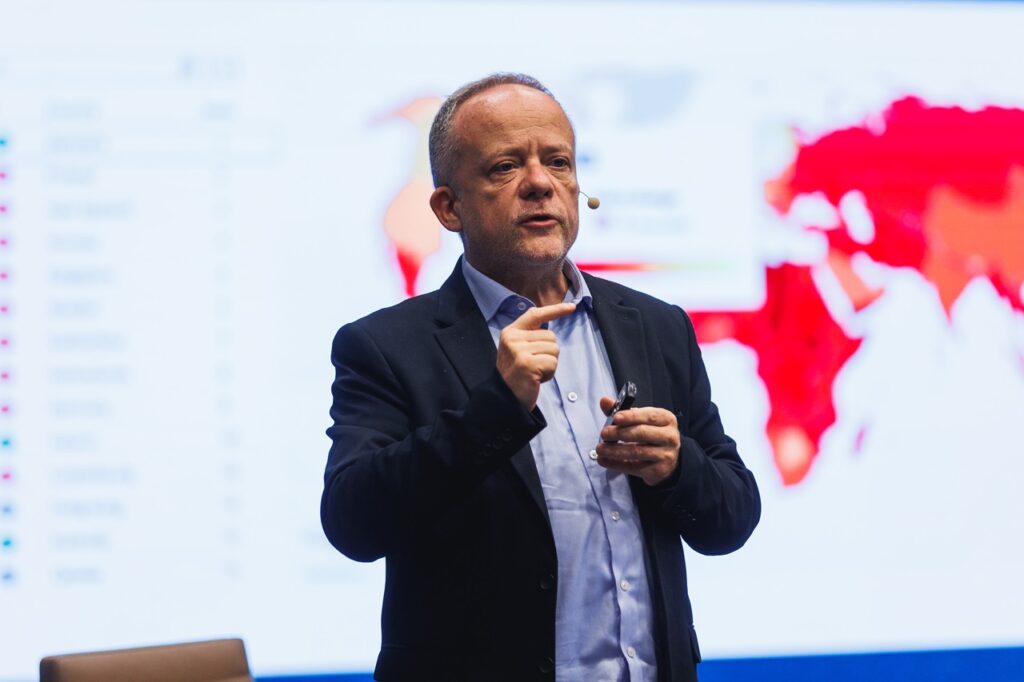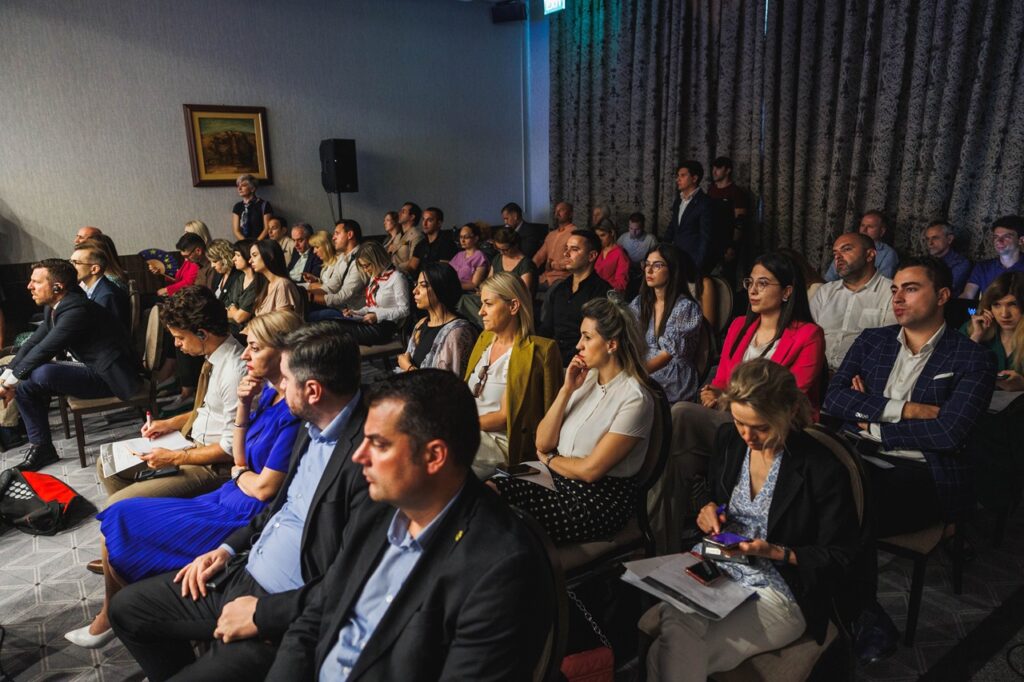The absence of systemic institutions, poverty, conflict, and an obsession with reputation are some of the elements that create a conducive environment for the development of corruption, stated psychologist Radoje Cerović at the forum “We Can Do It – Stop Corruption,” organized by the Centre for Civic Education (CCE) within the PACT Against Corruption project, supported by the U.S. Embassy in Montenegro, the Bureau of International Narcotics and Law Enforcement Affairs (INL).
During a session that offered a perspective outside of the box, Cerović highlighted the connection between economic and cultural parameters with the phenomenon of corruption, as well as the evolution of society from corruption to the rule of law.
“At the core of both corruption and the rule of law is cooperation. The difference is that corruption is cooperation within a smaller interest group, while the rule of law is the ability of individuals in society to identify with the entire society. This transition is the question of cultural maturity,” Cerović noted, emphasizing that not all cultures worldwide have matured at the same pace.

“For decades, Scandinavian countries, which have long been free from conflicts, have topped the list concerning the perception of corruption. Montenegro is currently ranked 65th on that international list,” Cerović said. He mentioned that since independence, Montenegro’s score improved until 2017 and has stagnated since then.
Cerović reflected on the historical context and the so-called culture of honor. “Montenegro, like many countries in the region, has a culture of honor. Although it sounds very nice, it is a culture of states or systems where institutions were not sufficiently developed to guarantee mediation between individuals,” Cerović explained.
In such a system of honor culture, there is an obsession with reputation. “This means that where I can hide that I will break the rules, I will break them,” Cerović added.
He also pointed out other elements, besides the obsession with reputation, that are conducive to the development of corruption, such as poverty, conflict, and the absence of systemic institutions.
According to Cerović, the wealthier a state, the more evenly distributed its wealth typically is, with the United States being an exception in this regard.
“The countries with the best GINI index, a measure of inequality, are the Scandinavian countries, while the most unequal countries, with the highest violence indices, are like South Africa, which is the most unequal country in the world,” Cerović stated.
Montenegro has one of the highest GINI indices in Europe. Cerović explained that a decrease in uneven wealth distribution favors gradual development and opens space for the maturation of society in terms of the rule of law.

“We are one of the most hierarchy-burdened societies in Europe” Cerović explained, reflecting on the importance of power relations and hierarchy’s impact on corruption.
Speaking about the relationship between the secularism of society and corruption, Cerović said that most religions are hierarchical systems that reinforce societal hierarchies and corruption. According to Cerović, last year, Montenegro was at the level of Lebanon and Turkey regarding the level of secularism.
MINA
